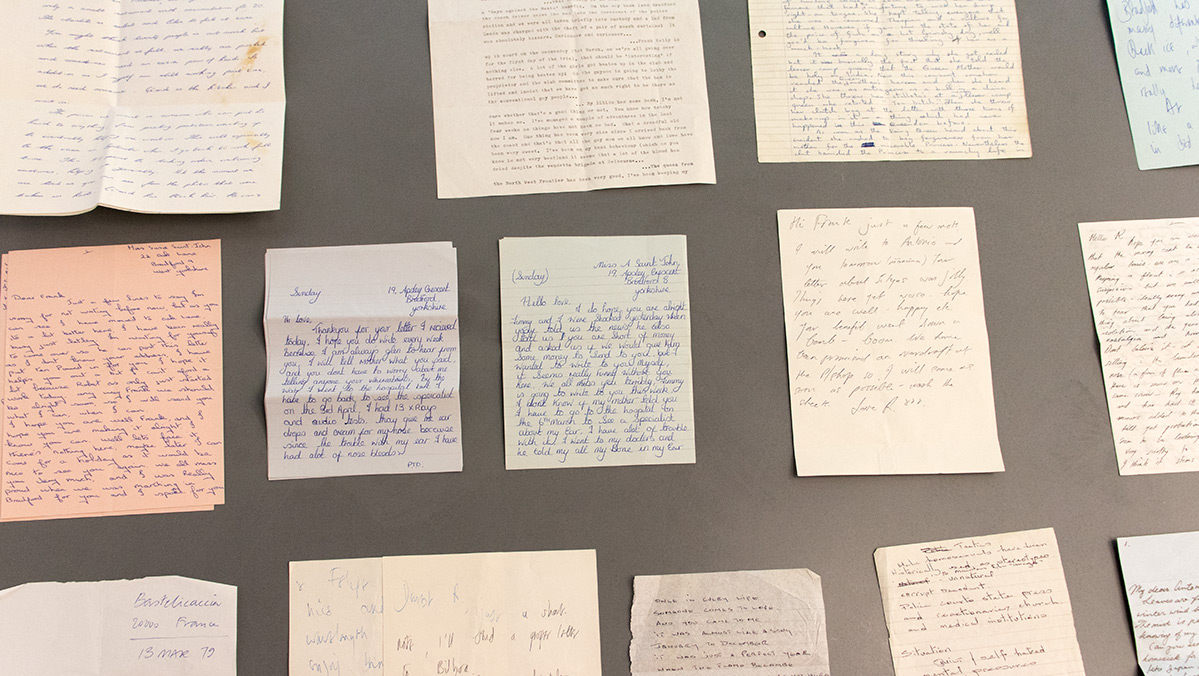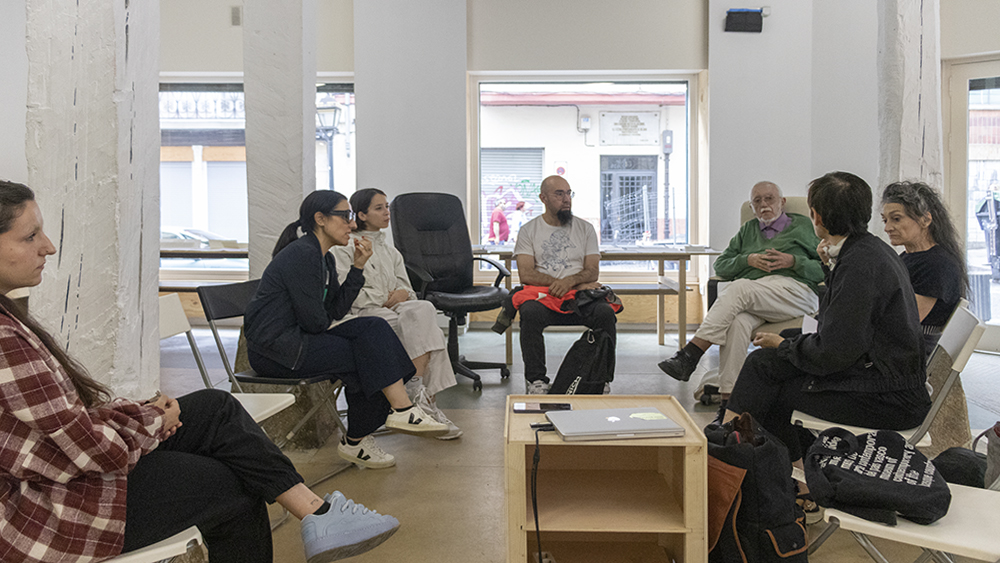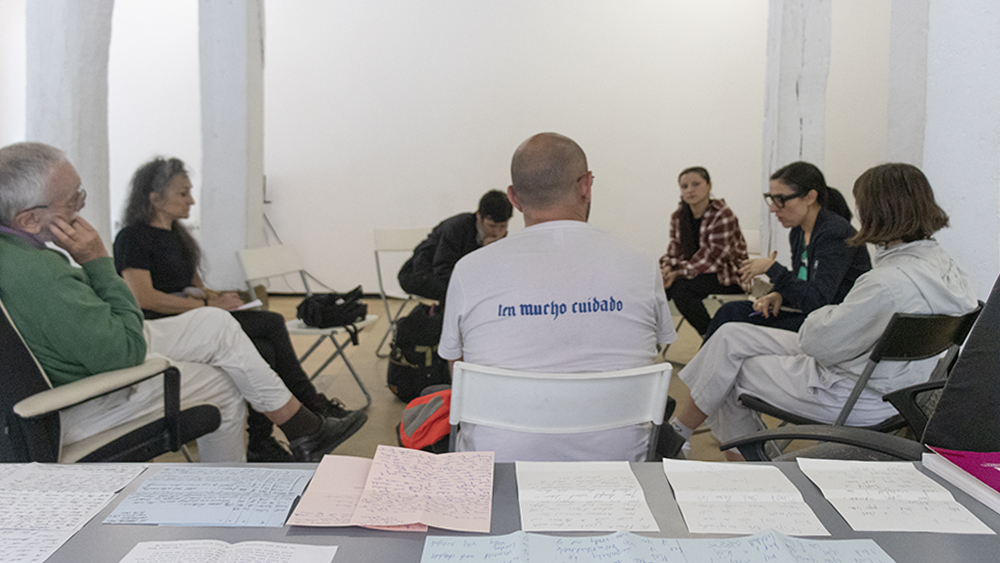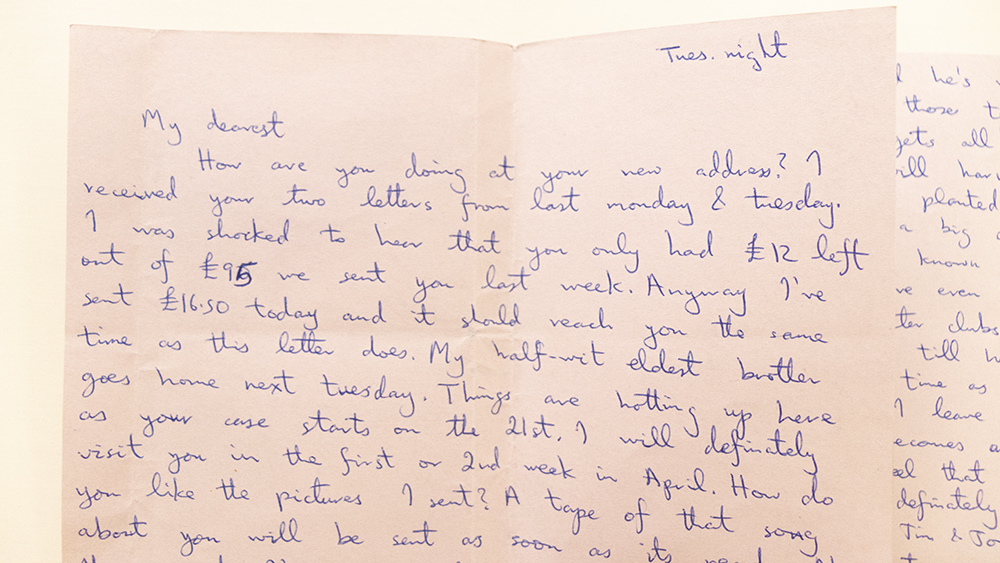Eskuz idatziak, ahoz josiak
ESKUZ IDATZIAK, AHOZ JOSIAK. 1st ENCOUNTER
by
FIRST ENCOUNTER OF THE ESKUZ IDATZIAK, AHOZ JOSIAK WORKING GROUP:
Thursday, 2024/06/13, 19:00 pm
Eskuz idatziak, ahoz josiak (written by hand, sewn with the voice) is a working group whose final aim is to write, imagine and realize an opera. Over the course of a series of meetings, it will work on the following questions: what does it mean to think collectively, and what is entailed in carrying out actions of reparative justice by means of working with archives. We have invited Rana Hamadeh, an artist who in her practice experiments with the form of the opera and the concept of “operatic labour”, so that she will help us to think together in the working group about that future opera.
Eskuz idatziak, ahoz josiak is the 2024-2025 edition of Space is the Place / The Place is Space. Initiated in 2018, the title of this Bulegoa z/b program paraphrases the 1974 Afrofuturist film by Sun Ra.
To take part in the first encounter of the eskuz idatziak, ahoz josiak working group, contact bulegoa@bulegoa.org
ESKUZ IDATZIAK, AHOZ JOSIAK
The starting point of eskuz idatziak, ahoz josiak will be the reading of some letters. The letters were handed to us by Antonio Quintana (1951-2023), co-founder of EHGAM (Gay and Lesbian Liberation Front of the Basque Country), who was interviewed by the artist Leon Filter during his residency in Bulegoa z/b. In the course of the interview, Antonio asked us to help him find a place for the safekeeping of some letters he was keeping at his home.
The letters were written to Frank Kelly, a militant of the left-wing and gay and lesbian liberation movements, and active in the alternative theatre scene of the city of Bradford. In early 1979 he sought refuge in the home of Antonio and his partner Felipe Florio. Frank Kelly had fled from the United Kingdom, where he was accused of having had sexual relations with Shaukat Ali, an underage youth of Pakistani origin. In April 1979, Frank Kelly travelled from Bilbao to Amsterdam as a spokesperson for EHGAM to a meeting of the ILGA, where he died a few years later. In Bilbao he left behind several letters sent to him by friends, relatives and his partner.
The judicial case against Frank Kelly, which provoked the support campaign “Frank Kelly Defence Fund”, was a key factor in lowering the age of consent in sexual relations between people of the same sex in the United Kingdom. The LGBTQIA+ archive of the Bishopsgate Institute in London, which holds material from the support campaign, will most certainly be the place that finally provides safekeeping to the letters sent to Frank Kelly.
The search for a place for Frank Kelly’s letters does not only consist in finding their final destination in an archive, but also everything that takes place in between – for example, the meetings of eskuz idatziak, ahoz josiak. Throughout this process, which has taken place by word of mouth, a chain of shared responsibilities has been generated, involving Leon Filter (artist), Aimar Arriola (researcher, curator and editor), Itziar Bilbao Urrutia (artist, activist and pornographer) and Danele Sarriugarte Mochales (writer, translator and member of EHGAM), as well as others who have taken part– and those who will take part in the future.
The meetings of the group eskuz idatziak, ahoz josiak are motivated by the spirit in which Antonio Quintana began this search. And also by his convictions: to understand memory as a collective responsibility that is built through intergenerational dialogue, the desire to realize an act of reparative justice, and the effort to pay attention to small and commonplace objects and things, as well as to the encounters that these can give rise to.





